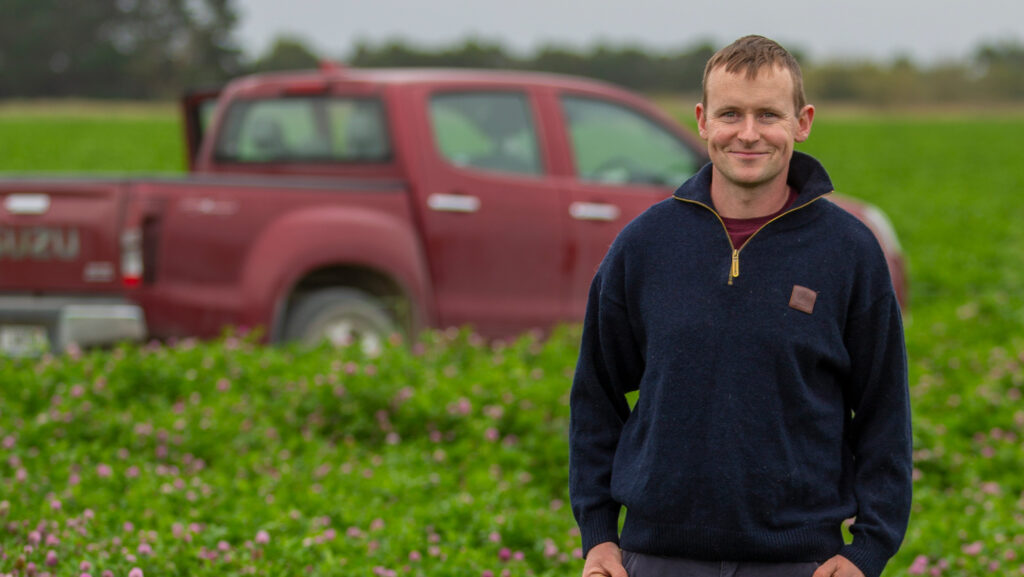Opinion: Climate change makes resilience-building a necessity
 Chris Bennett © Johnny Houston
Chris Bennett © Johnny Houston Summer 2025 in the UK was the hottest since records began. I am hoping my wife hasn’t read that, as I am trying to convince her the warm weather is just a return to normal for us Brits.
We moved from New Zealand three years ago and until now I’ve felt like a broken record, saying “it’s not usually this wet” and “normally it’s warmer than this”.
See also: Opinion: It’s the farmer who carries all the risk of regen
It has been unbelievably extreme weather. We have had the wettest winter ever, the hottest summer ever and the driest spring ever, all in the past two years.
I doubt any farmer, regardless of soil type or location, has got through those years without major problems.
Nobody can deny that the climate is changing, and it is hard to think of many professions that are more directly affected than farming.
I would call it the second-biggest threat to farming businesses after government policy.
As an industry, we must look at how we can reduce our emissions.
Whether we like it or not, farmers are significant emitters. In 2021, it was estimated that agriculture was responsible for 71% of the UK’s nitrous oxide emissions and 49% of methane.
While we can argue about methane being part of a cycle, these are large numbers for a relatively small industry.
It is also true that if we are able to reduce methane emissions, it can lead to actual cooling, not just less warming.
Suggestions such as using urease inhibitors, improving genetics and feeding different additives to cattle feel like they’re tinkering around the edges with only minimal impact.
The larger quantities coming from general fertiliser usage, manure and burning fossil fuels are much harder to tackle without significant technological developments.
To some extent we will have to rely on carbon capture in soils, trees or by other means.
Call me defeatist, but targets around net-zero are going to continue to be missed, both nationally and globally.
However hard we try, even the most optimistic modelling shows our climate will become yet more extreme.
On an individual farm basis, our time would be best spent working out ways of being more resilient to both wetter periods and hotter, drier ones.
On-farm changes
On our farm, we have found doing more direct drilling in the autumn has helped; in wet years, uncultivated fields dry faster and in dry years they hold moisture better.
Last season we also found out how important manure was.
Fields that had had muck spread more frequently outperformed others in the dry conditions, probably due to nutrient availability.
Including livestock in cropping rotations and straw-for-muck deals will be more important than ever.
Improved genetics for livestock and crops will help improve climate resilience, and we’ll need to be open-minded about new crops that may become viable in a warmer climate.
While agroforestry can be a bit like Marmite (you either love it or hate it), within livestock systems it brings value for shelter, shade and alternative feed sources in drought conditions.
In the UK we could actually be in a favourable position.
This cold, wet island is likely to stand up better to global warming than places round the world that are already unfeasibly hot.
Production is likely to become harder, but not impossible as it will be elsewhere.
Opportunities will arise, and we need to be ready to take them.

